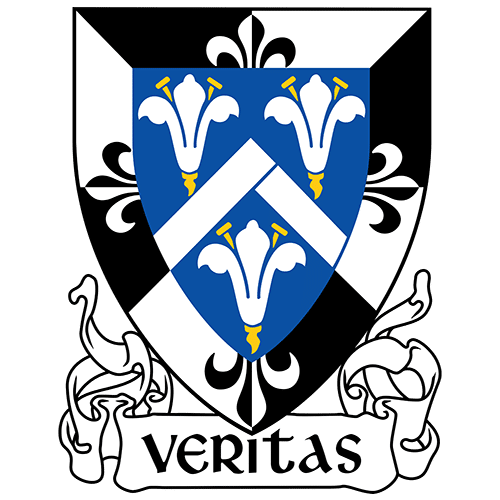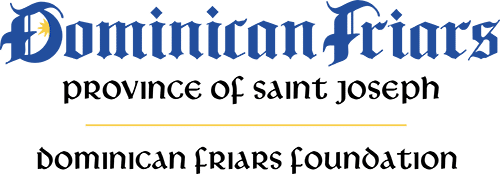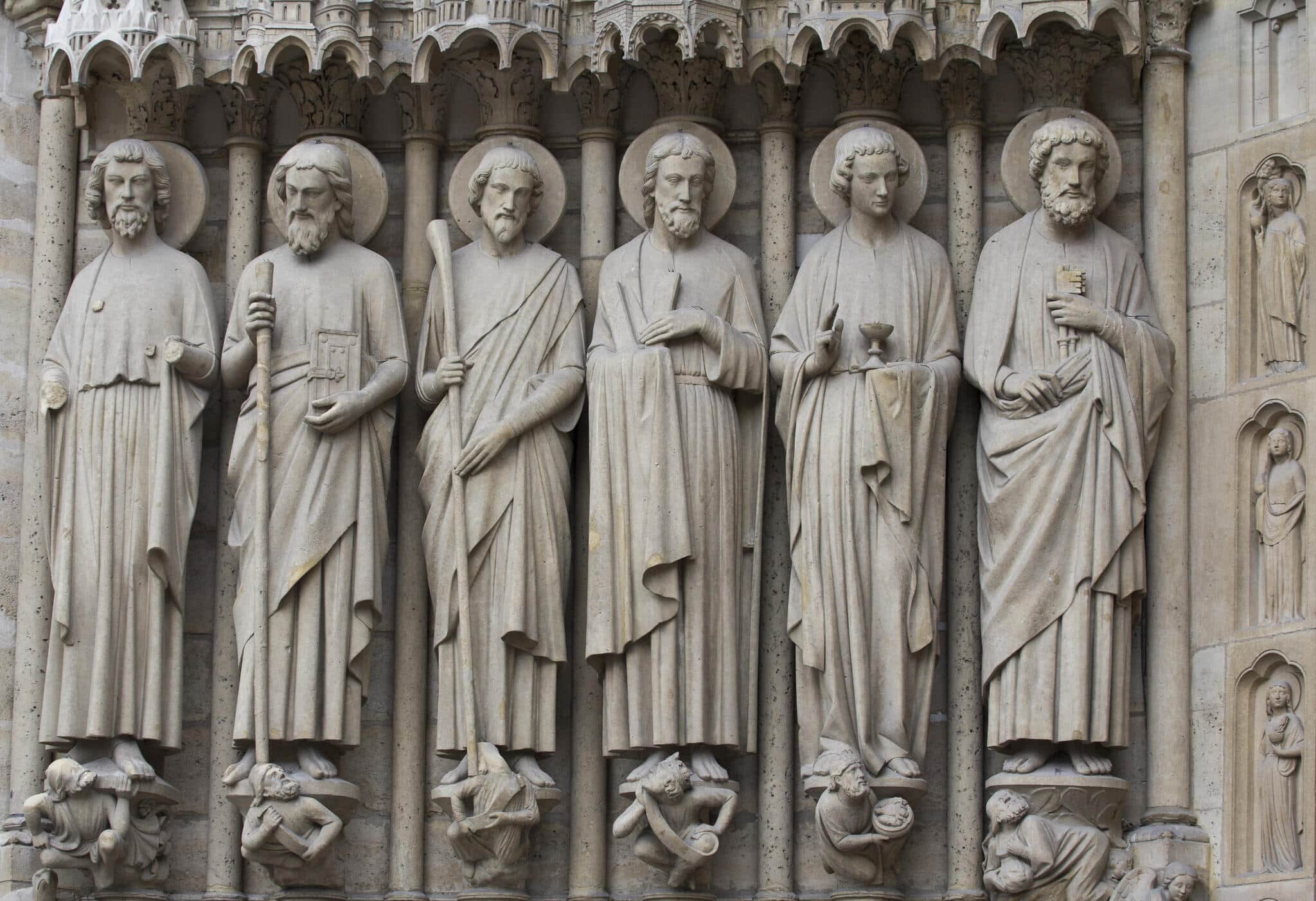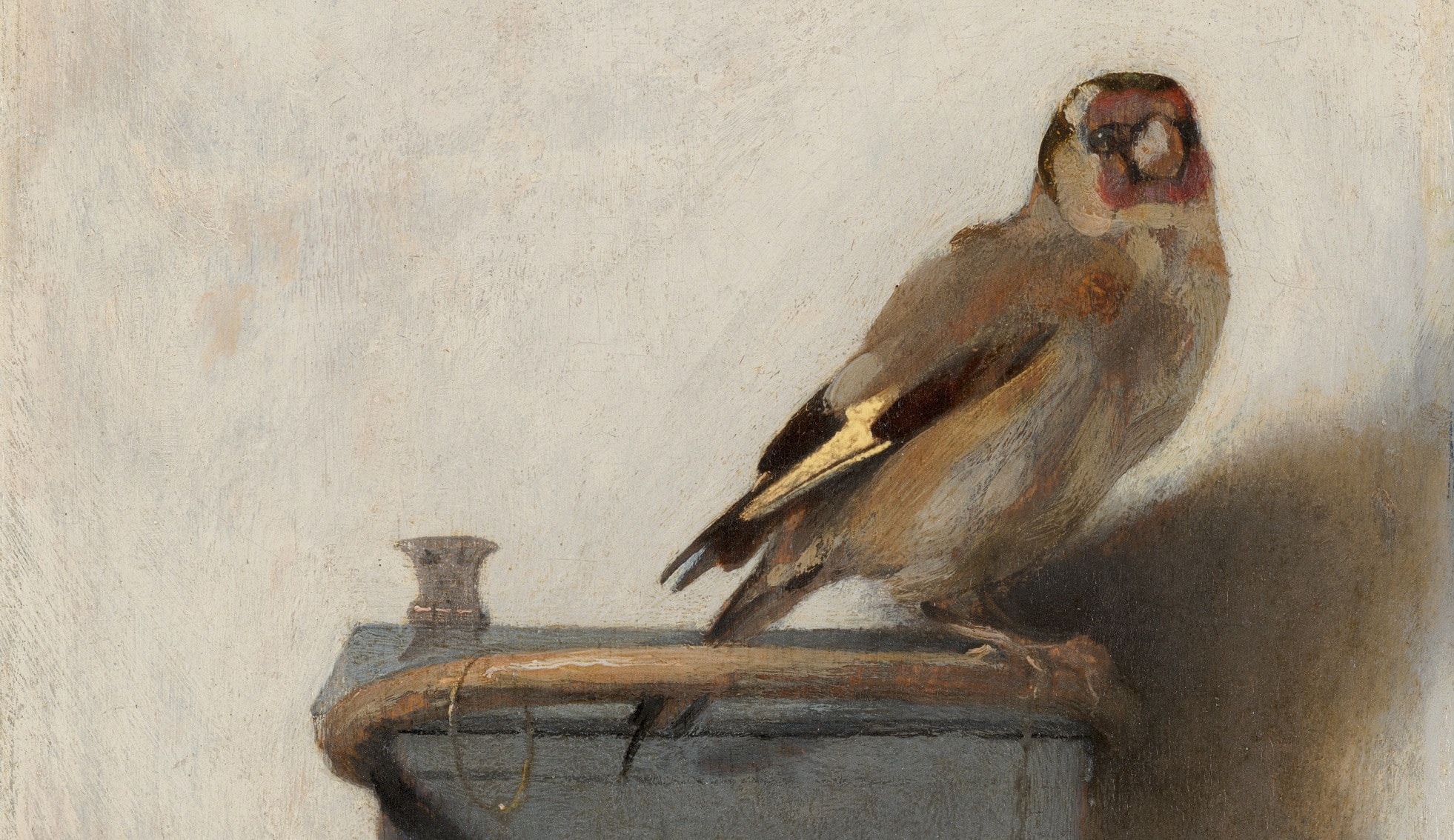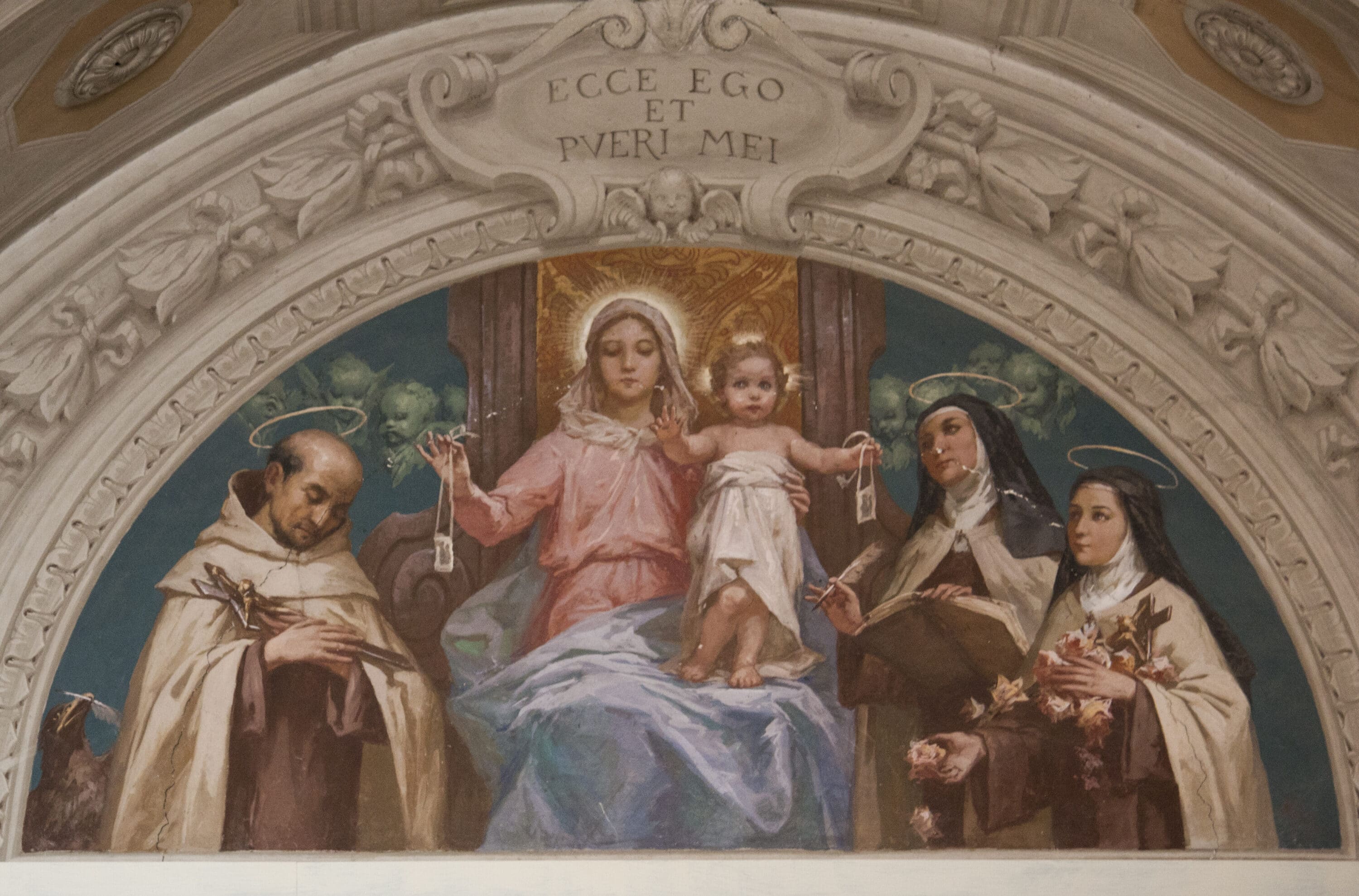[vc_row][vc_column][vc_column_text]
 Interview with an Exorcist: Fr. Luke Clark, O.P.
Interview with an Exorcist: Fr. Luke Clark, O.P.
By BlackFriars Staff
Fr. Luke Clark, O.P., was recently named chief exorcist of the Archdiocese of Washington, DC, by Archbishop Wilton Cardinal Gregory. He is also cofounder of the St. Michael Center for Spiritual Renewal (catholicexorcism.org), a Catholic organization that trains clergy, religious, and laity on spiritual deliverance.
What is exorcism?
The Catechism defines exorcism as when “the Church ask publicly and authoritatively in the name of Jesus Christ that a person or object be protected against the power of the Evil One and withdrawn from his dominion.” We see Jesus liberating the possessed throughout the Gospels. The bishop properly carries on this ministry in the Church and can delegate a priest to act on his behalf in these matters.
How do you determine whether the demonic is involved, versus a mental illness?
Psychological illness and demonic possession present differently. Rarely do we find a case that is purely psychological or purely demonic. We examine the person’s history for some type of invitation or opening to the demonic, either explicit or implicit. Demons are opportunistic. If there’s an opening, they’re going to take it, if God allows.
Can abortion create an opening?
Abortion is an open door for the demonic, and we’ve had cases where that’s exactly how the demons were able to possess the individual. The effects of abortion are devastating. The killing of the child, the mother’s fear, despair, guilt, shame, self-hatred and belief she has committed an unforgivable sin all point to the atmosphere of hell. Yet long as we live, we can repent and be forgiven of any sin, including abortion.
Help the Dominican Friars fight the battle for Life!
Washington is home to a pro-abortion executive branch. Does this affect your ministry?
Demons are very clear on authority and are bound to obey it’s proper exercise. They exploit it for their purposes as well. The authority structure of a nation can open or close doors to the demonic. It’s like a father who can allow things into his house or not. When authority invites and supports things that are openings to the demonic, you can safely bet they will be exploited.
How can ordinary Catholics protect themselves from the demonic?
We all contend with the world, the flesh, and the devil as we fight temptations and try to live a good holy life. So we deal with ordinary demonic stuff all the time. For most people, it’s not going to be things flying off the wall or scratches appearing on their bodies. It is primarily at the level of our thoughts, our psychology, and our moral choices.
The best protection is to be in a state of grace. Lots of people get cleared up simply through a good integral confession, which means all mortal sins have been covered and anything that may have been withheld in the past is brought to the confessional and surrendered. The first line of dealing with demonic issues is living the sacramental life of the Church: confession, Mass attendance, living the precepts of the Church. The Rosary is also an essential weapon against the demonic.
Can pornography play a role in opening the door to demonic influences?
To be quite honest, there’s more oppression and infestation of people’s homes because they are not living good, Catholic, moral lives. We find a greater need for people to receive deliverance prayers in order to free them of their sins.
One example is the area of pornography. Some pornographers actually curse their pornography. When the pornography is viewed the person commits a mortal sin while coming in contact with a cursed item. This can cause a type of demonic obsession. As the person tries of overcome the vice, the normal means prove ineffective. The curse must be broken and some deliverance prayers should be prayed by the individual and/or a priest. With the curse removed the normal means prove effective.
The St. Michael Center for Spiritual Renewal also works for priestly renewal. How is this connected to the ministry of exorcism and deliverance?
The Lord has placed deep in my heart a conviction that the priesthood is in crisis and priests, in some ways, don’t know who they are. There’s a lot of emphasis on business models, social work, and community organizing that can eclipse the essential difference of priest identity and mission.
Those who do exorcism ministry for any length of time witness the supernatural character of priestly identity and mission. In one of my first cases, Monsignor [Stephen J.] Rossetti and I were praying over a [possessed] person, and the demon, while manifesting, gave us both a look of pure hatred, a look I have seen many times since then. Monsignor had enough of it and said, “In the Holy Name of Jesus I command you to tell me, when you look at my face who you see?” The demon was forced to confess that when he looked at Monsignor, he saw Jesus. And then he pointed to me and he said, “When you look at his face who do you see?” And the demon confessed, “Jesus.”
There’s a priestly character, an identification with the Lord, and many priests don’t realize how real that is. We priests are involved in a supernatural ministry. Priestly ministry is about sacred, supernatural things.[/vc_column_text][vc_column_text]
Help the Dominican Friars fight the battle for Life!
[/vc_column_text][vc_column_text]
Your gift to support Pro-Life preaching will be matched dollar for dollar – up to $250,000 – by a group of anonymous benefactors if given by May 31!
[/vc_column_text][/vc_column][/vc_row]
